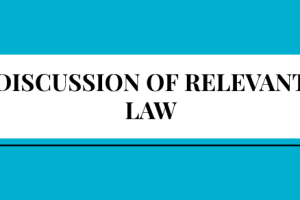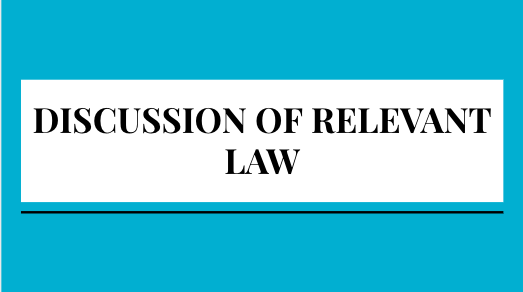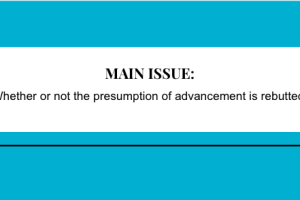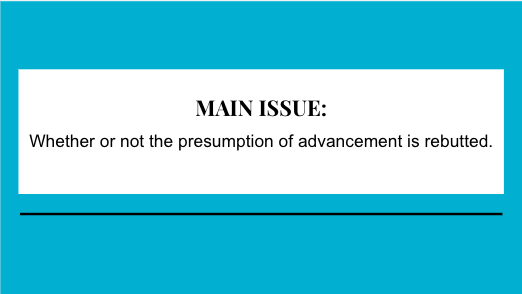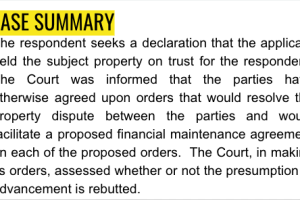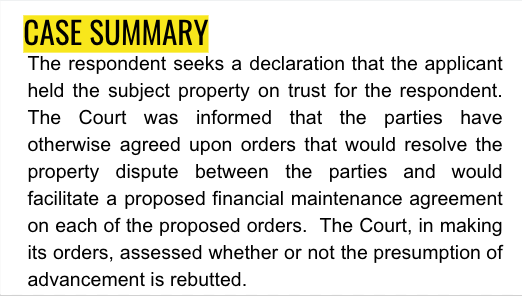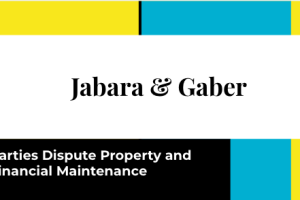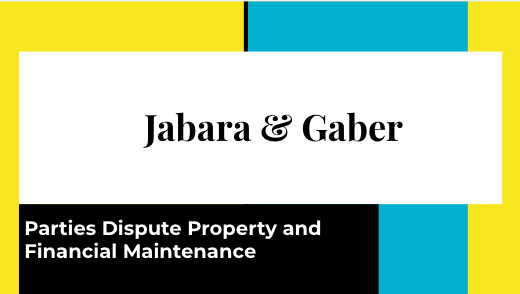- · 4849 friends
Parties Dispute Property and Financial Maintenance

Jabara & Gaber [2022] FedCFamC2F 1527 (11 November 2022)
The respondent seeks a declaration that the applicant held the subject property on trust for the respondent. The Court was informed that the parties have otherwise agreed upon orders that would resolve the property dispute between the parties and would facilitate a proposed financial maintenance agreement on each of the proposed orders. The Court, in making its orders, assessed whether or not the presumption of advancement is rebutted.

Facts
The applicant father joined his wife as first respondent and his mother as second respondent. On 9 December 2021, the second respondent filed an application seeking a declaration that the applicant held a property being B Street, Suburb C, New South Wales, in folio ..., identifier ... (the Property) on trust for the second respondent. The Court was informed that the parties have otherwise agreed upon orders that would resolve the property dispute between the parties and would facilitate a proposed financial maintenance agreement on each of the proposed orders. The Court has not seen those documents.
The Court was informed that there was no opposition to determination of the issue of the relevant property being held on trust. The parties agreed upon the Court treating the affidavits filed as being in evidence before the Court on the limited issue and the parties indicated no wish for any cross examination. Mr Iuliano, on behalf of the first respondent, identified that he went a bit further than the proposition advanced of no opposition to the trust issue and put submissions that the making of a will by the applicant in 2001 should be regarded by the Court as consistent with the property in fact being beneficially owned by the applicant. Additionally, Mr Iuliano on behalf of the first respondent, suggested that the evidence in relation to the source of the funds, to the extent accepted without contest as coming from the second respondent, was not one where the presumption of advancement had been rebutted.
The second respondent identified, in her affidavit dated 21 August 2020, that she has six children and that the applicant is the oldest. The applicant identified that he had a permanent resident visa but had not yet acquired Australian citizenship. The second respondent deposed to the fact that she bought the property at B Street, Suburb C, at a time that she did not have any knowledge of trusts but the second respondent identified that she wanted to put the property in the applicant’s name, quote, “in the hope that it would assist him in being able to gain his Australian citizenship. This was a limited and confined purpose in terms of transfer of beneficial interest and reflected a name only transfer.
The second respondent deposed to the fact that she asked the applicant to ensure that he made a will that provided for the property to pass to the applicant’s estate and to the applicant’s five siblings in equal shares in case something happened to the second respondent. The second respondent identified that she paid the full purchase price for the property and paid the stamp duty and associated costs and has always paid the council rates, insurance premiums since she purchased the property.
It is apparent that the Land Title Register records the applicant as being the owner of a property in the first schedule. There is an unchallenged note in relation to the remittance of funds in respect of a purchase dated 2001. There is also in evidence a will, dated 2001, by the applicant that relevantly purports to record a gift. That Will did not accord precisely with the express and confined purpose specified by the second respondent, but is corroborative of an intention at the time of acquisition by the second respondent other than to transfer full beneficial title to the applicant.

Issue
Whether or not the presumption of advancement is rebutted.

Applicable law
Napier v Public Trustee (WA) [1926] ArgusLawRp 12; (1980) 32 ALR 133 at 158 - provides that where property is transferred by one person into the name of another without consideration, and where a purchaser pays the vendor and directs him to transfer the property into the name of another person without consideration passing from that person, there is a presumption that the transferee holds the property upon trust for the transferor or the purchaser as the case may be.
Analysis
The contemporaneous expressed intention and purpose of the second respondent did not include the wife referred to in the Will. Further the Will corroborates the existence of the intention by the second respondent at the time of transfer other than supportive of the presumption of advancement. A further affidavit of the second respondent, dated 9 December 2021, identified that the property had never been rented and is being occupied by different family members over different time periods. The applicant’s affidavit, dated 12 May 2021, identified that he was the registerer proprietor and did not contribute any money to the purchase of the property and that the purchase price as well as stamp duty was paid by the second respondent.
The unchallenged evidence of the second respondent is that she was placing the property into the name of the applicant, not that she was giving the property to the applicant or that she was intending to transfer the whole of the beneficial interest in the property to the applicant. The reference to advancing the applicant’s application for citizenship is not one inconsistent with the applicant holding the property on trust for the second respondent in accordance with a resulting trust. In the present case, the second respondent had lost her husband and it is apparent that the property was the subject of communications prior to its acquisition to the effect of an expressed intention by the second respondent that it was to be held by the applicant subject to conditions concerning inheritance by the applicant and his siblings equally. The identified conditions, limited purpose and reference only to name, reflect an intention of the second respondent not to confer full beneficial interest on the applicant and are in the present case sufficient to rebut the presumption of advancement as between the second respondent mother and applicant child.
The evidence is taken as a whole, in that regard, it is apparent that the second respondent did not intend the applicant to hold the property other than in name. The whole of the source of funds came from the second respondent in the acquisition of the property and the differing family members occupying the property are consistent with the property in fact being that of the second respondent. The meeting of the outgoings by the second respondent is consistent with the existence of that resulting trust.
Conclusion
Mr Gaber holds the property B Street, Suburb C Folio: ... on resulting trust for Ms Castella.


